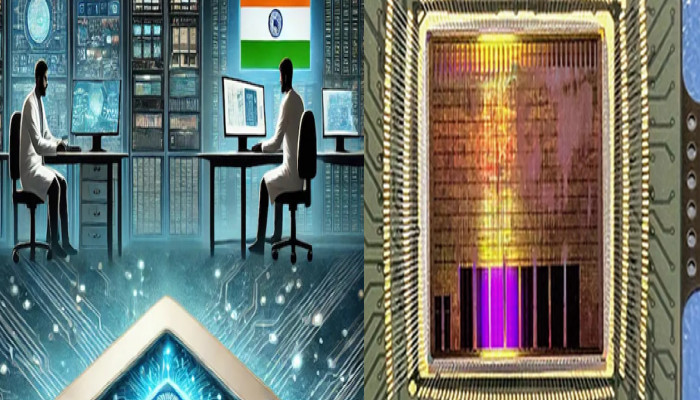‘Make in India’: IIT Madras, ISRO develop SHAKTI semiconductor chip
- In Reports
- 05:56 PM, Feb 11, 2025
- Myind Staff
India is rapidly advancing in future technologies. With the successful development of indigenous semiconductor chips for aerospace applications, the country is now leading the way. This achievement was made possible through the collaboration between the Indian Institute of Technology Madras (IIT Madras) and the Indian Space Research Organisation (ISRO).
The chip, called IRIS (Indigenous RISC-V Controller for Space Applications), is a component of India's drive for semiconductor technology independence and is based on the SHAKTI microprocessor. The IRIS chip, fully made in India, is developed to support ISRO’s command and control systems and other critical functions. Designed for fault tolerance and reliability, it is well-suited for space missions. It includes custom modules like WATCHDOG timers and advanced serial buses, ensuring robust performance. Additionally, the chip is expandable for future missions through multiple boot modes and hybrid memory extensions.
The IRIS chip was developed through a collaborative effort across India. It was conceived by IISU Thiruvananthapuram, designed by IIT Madras, and manufactured at SCL Chandigarh. The chip was then packaged by Tata Advanced Systems in Karnataka, while its motherboard was made in Gujarat and assembled in Chennai. The processor's software was created at IIT Madras, where the chip was successfully tested. Professor V. Kamakoti, Director of IIT Madras, highlighted that this is the third SHAKTI chip made in India, following RIMO in 2018 and MOUSHIK in 2020. Dr. V. Narayanan, Chairman of ISRO, described it as a significant achievement in India's semiconductor progress and applauded the efforts of teams at IISU and IIT Madras.
SCL Chandigarh Director General Kamaljeet Singh emphasised that the IRIS chip was constructed utilising SCL's 180 nm technology node, showcasing India's expanding capacity in semiconductor production. This advancement strengthens India's efforts under the "Make in India" and "Atmanirbhar Bharat" programs and represents a major step toward independence in semiconductor and space technologies.







Comments